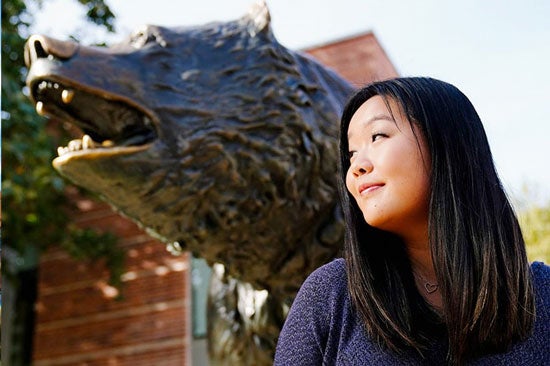
Guidance for faculty on spring 2021 instruction
Academic Senate Graduate and Undergraduate Councils
To: UCLA Faculty
Dear Colleagues:
This memo provides guidance for Spring 2021 instruction. As of March 22, 2021, courses in Spring will be held primarily remotely, but a small number of courses have transitioned to in-person instruction. A limited number of new in-person courses have been approved as well. Despite these changes, we still have a number of students residing in different time zones and with different qualities of remote access.
Many of our students are residing in time zones 8-16 hours different than the local time, and have found synchronous remote learning to be very challenging. In recognition of the disproportionate challenges some of our students face, we encourage all instructors to consider the following:
Remote instruction
- Record your lectures in Zoom and post them to CCLE to accommodate students living in different time zones. Recorded lectures will have captions and transcripts.
- Turn on real-time, automatic captions in your Zoom lectures. Captions during live lectures support many different types of learners, and is a Universally Designed method to increase access for all students.
- If possible, offer office hours at different times to accommodate students living in different time zones.
- Create longer timeframes for assignments to accommodate students with poor internet access, difficult learning environments, and/or who are living in different time zones.
- Build in flexibility into your syllabus and course policies.
Assessments and final examinations
Instructors must announce their methods of evaluation at the beginning of the course (UCLA Senate Regulation A-332). Instructors continue to have flexibility in the duration and scheduling of the final written examination in their undergraduate and graduate courses in response to the challenges posed by remote learning and the global pandemic and in ways that support student progress and instructional continuity.
If you are considering a timed exam, be mindful that students are living in different time zones across the globe. Timed and remotely proctored exams can create additional stress and difficulty for students who are experiencing internet, hardware, and scanning/uploading issues. Imposing the same narrow examination time for all students may cause unneeded hardship for students who may be compelled to take the exam at an inopportune time. Moreover, changing the scheduled day and time of an exam for all students may cause conflicts with other exams.
If you are considering requiring that students turn on their videos during remote proctoring, be mindful that doing so can create additional stress and difficulty for students who are experiencing internet and hardware issues, and that some students may not be living and studying in a place that is private, quiet, and comfortable for taking exams.
We encourage all instructors to consider the following options for assessments:
- Use CCLE tools to set a time limit within a flexible time period (e.g., a 3-hour time limit in a 24-hour period) to accommodate students living in different time zones.
- Offer two or three different versions of the exam at two or three different times in a 24-hour period.
- Refer to the UCLA Remote Assessment Recommendations (Google doc) for more ideas for remote assessments.
Academic integrity
Encourage academic integrity by having students agree to an honor code, and reminding them of the UCLA Student Conduct Code. The Student Conduct Code has been updated to highlight that distributing course materials for commercial purposes is prohibited. Because the number of companies and websites are on the rise, the updated Code includes a broader encompassing definition.
Consider the following options to discourage and de-incentivize academic dishonesty:
- Use open-book, “take home”-style assessments.
- Create multiple, lower-stakes assessments to help to de-incentivize academic dishonesty.
- Use CCLE tools such as question order shuffling and pulling questions from a question bank at random.
- Where possible, do not curve assessments. If some students cheat, their “success” will not reduce the chances for other students to earn high grades.
Accommodations
For information about the impact of remote learning on accommodations approved by the CAE, visit Remote Instruction Addendum to Accommodation Instructions for Faculty. Common accommodations include exam accommodations (e.g. extra time); Adjusted Assignment Deadlines; Peer Notetaking, Sonocent, Otter, Livescribe, or Audio Recording; Captioning; and Alternative Format.
- If you have questions about a student’s accommodations, contact the CAE counselor listed on the student’s Accommodation Letter.
- If you have questions regarding proctoring services, contact the CAE Testing Center at caetesting@saonet.ucla.edu.
- For resources to make your instructional materials accessible, visit the Office of Information Technology’s Disabilities & Computing Program’s COVID-19 Accessible Instructional Material Resources.
Thank you for your continued hard work, flexibility, and integrity during this challenging time.
Sincerely,
Andrea Kasko
Chair, Graduate Council
Megan McEvoy
Chair, Undergraduate Council


